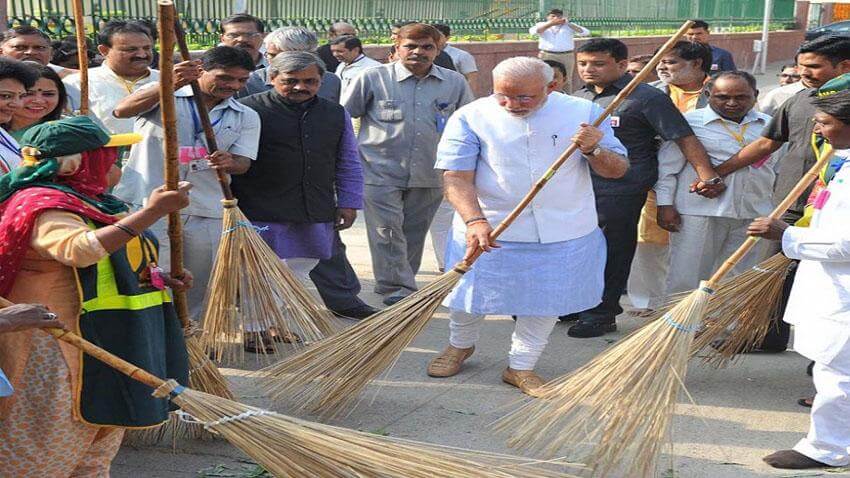
The National Education Policy looks at the Right to Education Act for sustenance without even examining whether the Act legislated in 2009 served the desired purpose. The existing provisions of RTE extend only to students from class 1 to class 8. The NEP extends the ambit of RTE to preschool and classes 9 to 12. In “Ethical Dilemmas of a Civil Servant” while examining the efficacy and utility of RTE, I commented that “The Right of Children to Free and Compulsory Education Act 2009 (RTE) did precious little to improve the state of affairs. The legislation made the task of delivering quality education complex and difficult. No attempt was made to consider the ground reality while enacting the legislation. The consequences were disastrous”. The learning outcomes since this enactment have come down. However, still the NPE puts enormous faith in the legislation.

NEP is not an isolated case. There are many more such examples. Various governments haven’t put in place robust systems to objectively evaluate the impact of legislation and institutions. Why doesn’t the government evaluate legislation and institutions because every stakeholder will stand to benefit in the long run? The answers are not far to seek. Almost all governments use data selectively to demonstrate that “all is well”. If objective reports regarding the outcomes become available, it would be extremely difficult to push them under the carpet (there are exceptions here as well). It requires courage to accept one’s mistakes and the most courageous of governments find it difficult to do that. In the absence of hard data, they can always paint a picture that does not reflect the ground reality. The absence of such reports allows the fabricators to weave the ground reality itself.

Governments do get evaluated once in five years at the hustings. Several schemes also get evaluated. However, by and large, legislation and institutions don’t get evaluated by any third party. Some of them, like the Judiciary, are “above” evaluation. One can understand the huge pendency of cases in courts at various levels on account of the litigious nature of our existence but how do you explain the vacancies in various courts when the Judiciary keeps pulling up other arms of the State for vacancies? Perhaps charity doesn’t begin at home in this instance. Some third-party needs to evaluate the impact of long vacations (a colonial legacy) in the higher judiciary on the pendency of cases. There are several conscientious judges who work hard even during these “vacations” but this and many such issues that afflict our judicial system need to be evaluated, assessed and addressed.

Let us look at some other institutions that have been set up without evaluating the performance of similar institutions that were in existence before. Lokpal is one such example. It was created as a consequence of a social movement. Was this institution created after evaluating the performances of Lokayukt in the States? Did the Lokayukt bring down corruption or corrupt practices in the states? None of the states have evaluated the impact of Lokayukt on corruption. Will Lokpal also end up as an institution to “reward” civil servants and judges because there appears to be no effort to evaluate its impact either? There is nothing laid out upfront to determine whether this institution will be evaluated. Hence, parameters have not been laid down for its evaluation. There are several similar institutions that have been created by the government without even thinking about whether such institutions will at some point in time be assessed to ascertain whether they served the desired purpose.
The Planning Commission was dumped because it was “felt” that it was not serving the desired purpose. It was a decision that was not based on objectively evaluating the organization but on a “belief”. Will the NITI meet the same fate at some point in time? Isn’t it advisable to assess what this institution is doing? Is it adding value? Only a third-party evaluation can determine this. The primary objective of such evaluations will be to see whether the objectives for which such institutions were set up were achieved and, if not, what steps could be taken for course correction. This will also push the government to clearly define the roles of such institutions and parameters to measure progress.

In some social sector schemes evaluations are done periodically. No one doubts the success of Swachh Bharat Abhiyan in rural areas because of repeated robust evaluations of the scheme. Similarly, despite some shortcomings (we must appreciate that no scheme is perfect), MGNREGA has also been periodically evaluated and course corrections done based on such evaluations. Such evaluations have helped the programme to sustain itself despite changes in the government. Similarly, the Rashtriya Swasthya Bima Yojana (RSBY) got re-incarnated in a modified form (accounting for shortcomings of the schemes) as Prime Minister Jan Aarogya Yojana (PMJAY) despite being “condemned” lock stock and barrel by a Group of Secretaries.

To a certain extent, the malaise afflicts the private sector as well. Hence, instead of depending upon objective analyses of various ed-tech applications, the pitch for a certain high-profile application is being made by a well-known superstar whose educational credentials would perhaps not justify his appearance. It is now believed that the concerned private ed-tech company is in trouble.
Also Read: Why should I join the IAS?
There are indeed some organizations that can undertake evaluations of various institutions, organizations and processes. More such organizations can and should be set up to undertake the task. However, what is most important is the attitude toward such evaluations and the willingness to get evaluated. There is a general reluctance to get oneself evaluated. Evaluations are more often than not used to serve a limited purpose of dumping “others”. This needs to change. Evaluations need to happen in the interest of the institution/scheme/process.

